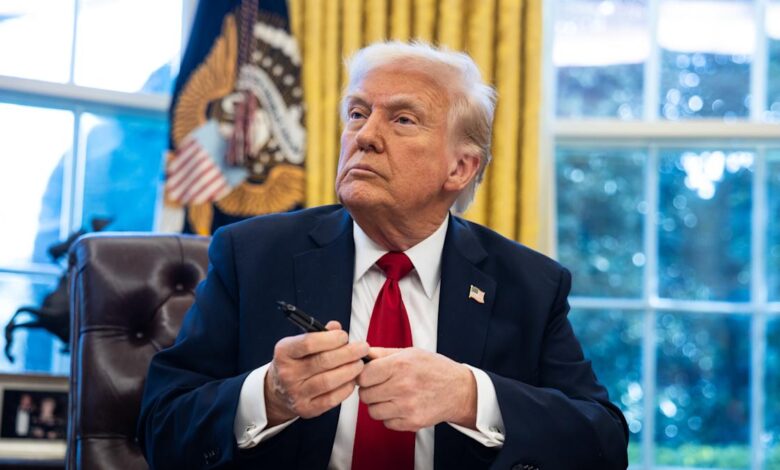4 Mistakes the Upper Middle Class Are Making With Their Money in the Trump Economy

As President Donald Trump’s second term is now in full swing, many upper-middle-class Americans are making financial moves that feel smart now but could backfire later. From reactive investment decisions to unsustainable spending habits, these short-term decisions are quietly setting the stage for long-term setbacks.
Consider This: Trump Wants To Replace Income Taxes With Tariffs — 2 Impacts on the Middle Class
Read Next: 6 Hybrid Vehicles To Stay Away From in Retirement
Here are four mistakes the upper-middle-class is making with their money in the Trump economy.
Some upper-middle-class investors have adjusted their portfolios based on their feelings about Trump’s economic policies rather than sticking to sound financial strategies.
“Many investors who believed Trump would win the presidency bought (shares of) Trump Media & Technology Group (DJT), believing a Trump victory would translate into gains for DJT,” said Robert Johnson, an author and finance professor at Heider College of Business at Creighton University. “DJT has lost approximately 55% in value over the last year.”
“Wholesale changes in investment strategy as a response to Trump’s economic policies is likely to be the subject of regret by investors,” Johnson explained. “My advice is not to mix investment strategy decisions with politics.”
Learn More: Trump’s Economy — Why Millennials Love It and Boomers Don’t
Some upper-middle-class individuals have overextended themselves in real estate, encouraged by Trump-era tax breaks and the possibility of their return, like 100% bonus depreciation and lower capital gains taxes.
“Many upper-middle-class Americans are guilty of overleveraging themselves in real estate, assuming that home values will continue rising indefinitely,” said Erika Kullberg, a personal finance expert.
However, banking on favorable policies while carrying too much debt leaves them vulnerable if the market shifts or those policies stall.
“This is risky because high mortgage rates and economic uncertainty are likely to eventually lead to a decline in property values,” Kullberg said. “When that time comes, they’ll be left with homes they can’t sell easily without taking a loss.”
According to the Federal Reserve’s survey of consumer finances, 61% of upper-middle-income households held credit card debt, the highest percentage among all income groups. Only 26% of the highest-income households carried credit card debt.
“Upper-middle-class Americans are taking out loans on that they don’t need to,” said Melanie Musson, a finance expert with InsuranceProviders.com. “The threat of things getting more expensive because of tariffs is pushing some people to want to buy now before they cost more.
Source link

